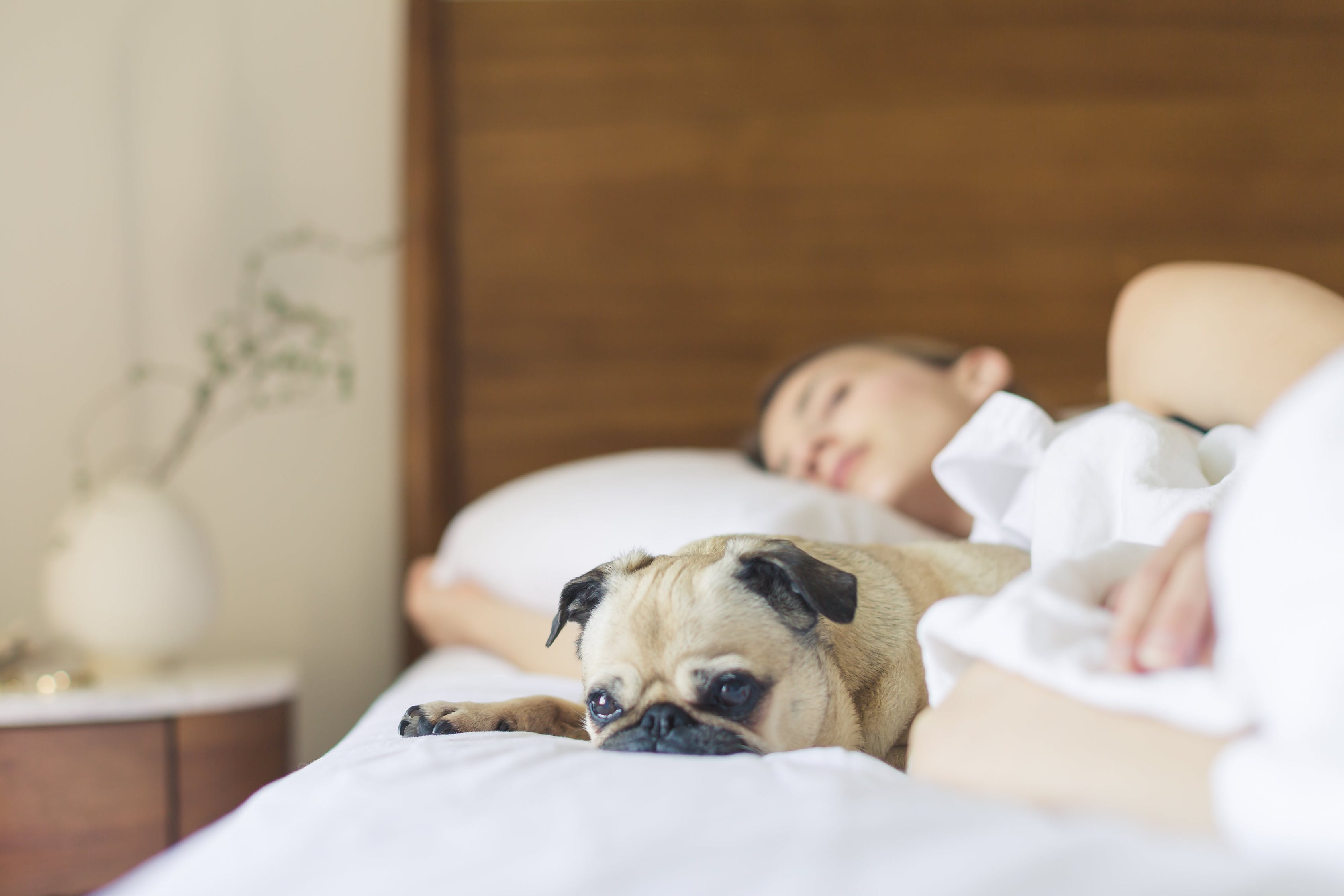
It so happened that for about fifteen years now, my body reacts to various stresses, depriving me of a sufficient amount and quality of sleep. And I love to sleep, and I love to be vigorous and sleepy! Therefore, all these years I have been tirelessly fighting for my sleep and using all the ways to improve it, which I learn about and which are available to me. This text is a selection of life hacks to improve sleep, but first of all, this is my personal experience. I hope it will be useful to those who, like me, like to sleep well, but sometimes have problems with it.
So that you understand the scale of the problem. This is the Wikipedia definition of insomnia:
“Insomnia is a clinical syndrome characterized by recurrent complaints of any presumed (prolonged falling asleep), intrasomnic (frequent awakenings during the night, after which it is difficult for the patient to fall asleep again, a feeling of superficial, non-restorative sleep) and / or postsomnic disturbances (early awakening, lack of vivacity, feeling of weakness), arising despite the availability of sufficient time and appropriate environment for sleep. "
So, ALL of the above problems in different years of my life I had a chance to feel on myself - and feel it more than once.
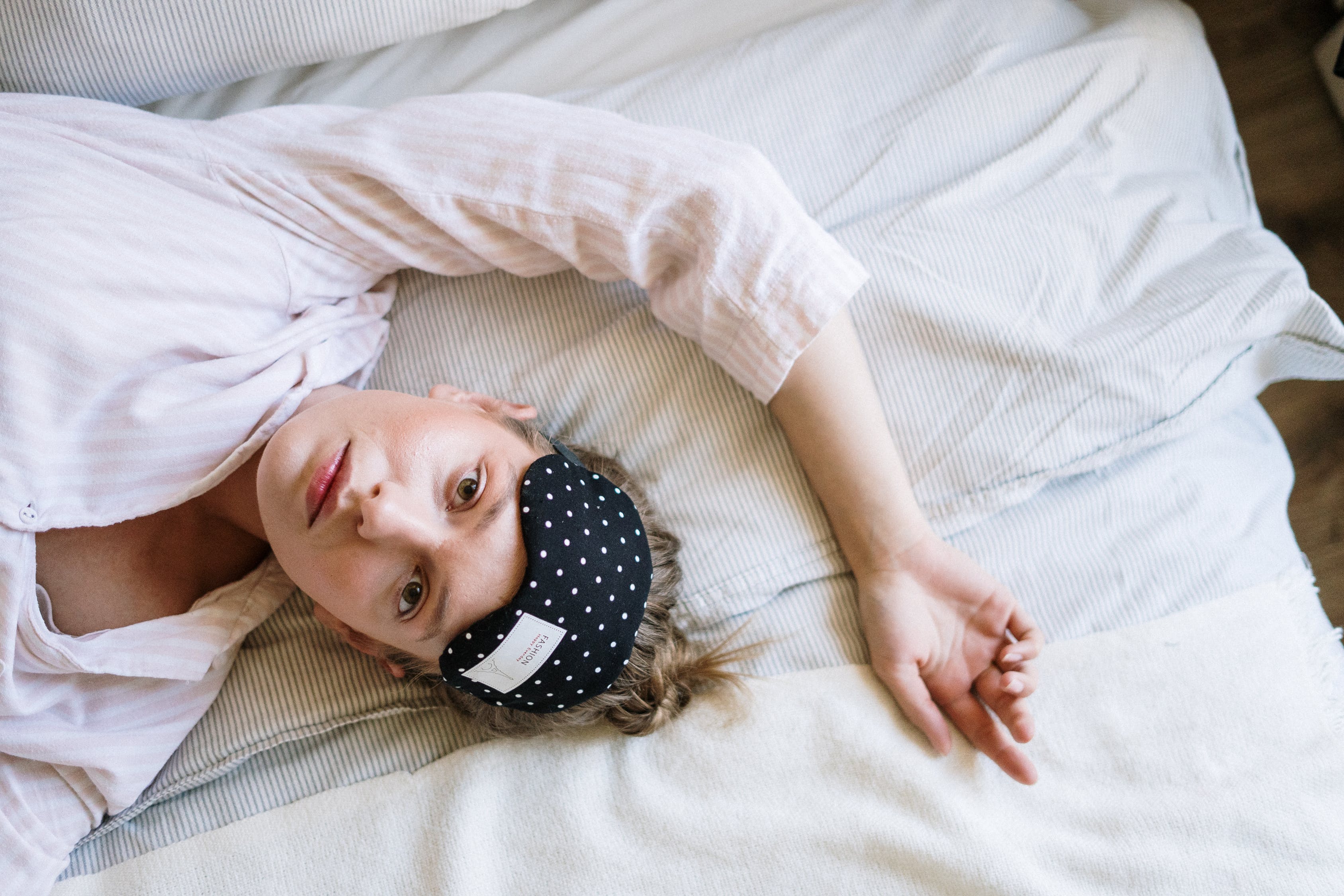
There were periods when I couldn't sleep for a long time every evening. I spent endless hours in bed, exhausted from the desire to sleep and the inability to do it. At other times in my life, I woke up several times during the night, slept shallowly, and ended up getting up completely sleepy. A few years later, regular morning awakenings began: something made me wake up at 4-5 in the morning, and I couldn't sleep back. Sleep problems last from several weeks to several months and may recur.
In fact, it's not so tragic: I usually manage to neutralize these regular manifestations of insomnia. Sooner or later, the "sleepless" period ends, and I begin to sleep normally. But life is like this: new stress occurs, and my anxiety-prone psyche again deprives me of sleep. Then I turn to one or more life hacks that I have tried over 15 years of struggle for sleep.
Here they are - with comments about my personal experience of using them.
1. Darkness helps sleep
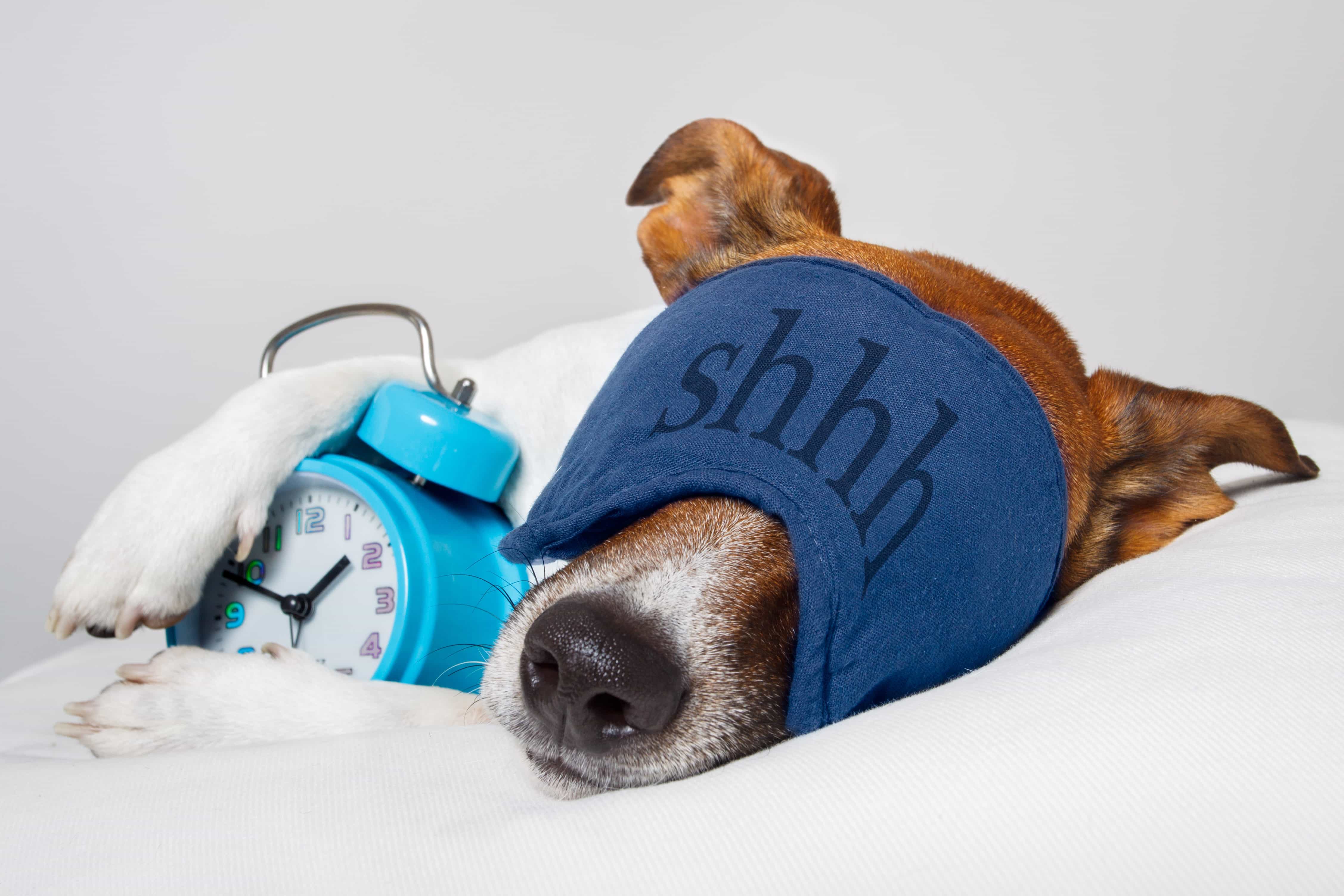
Scientists have repeatedly spoken about this, and Habr wrote about it (for example, here https://habr.com/ru/company/mailru/blog/230987/ ). You sleep better in the dark than in the light, no matter how insignificant this light may be - I confirm with all confidence. It's good to buy blackout curtains, turn off all nightlights and remove any technology with glowing indicators out of sight. But the most effective and simple remedy is a sleep mask. At first, it may interfere a little, but then you get used to it - and the effect is not long in coming.
2. Silence helps sleep
Another common truth, and advice that, in my experience, works. The easiest and most adequate way to achieve silence during sleep for a particular person in an apartment in a metropolis is with earplugs. There are different models of earplugs out of different materials, and it is probably worth trying a few to find the best fit for you. I was most approached by soft silicone ones: they take the shape of the ear canal, are almost not felt, rarely fall out of the ears and neutralize sounds well. For example, such .
3. Before going to bed, it is better to rid yourself of light sources in the blue part of the spectrum.
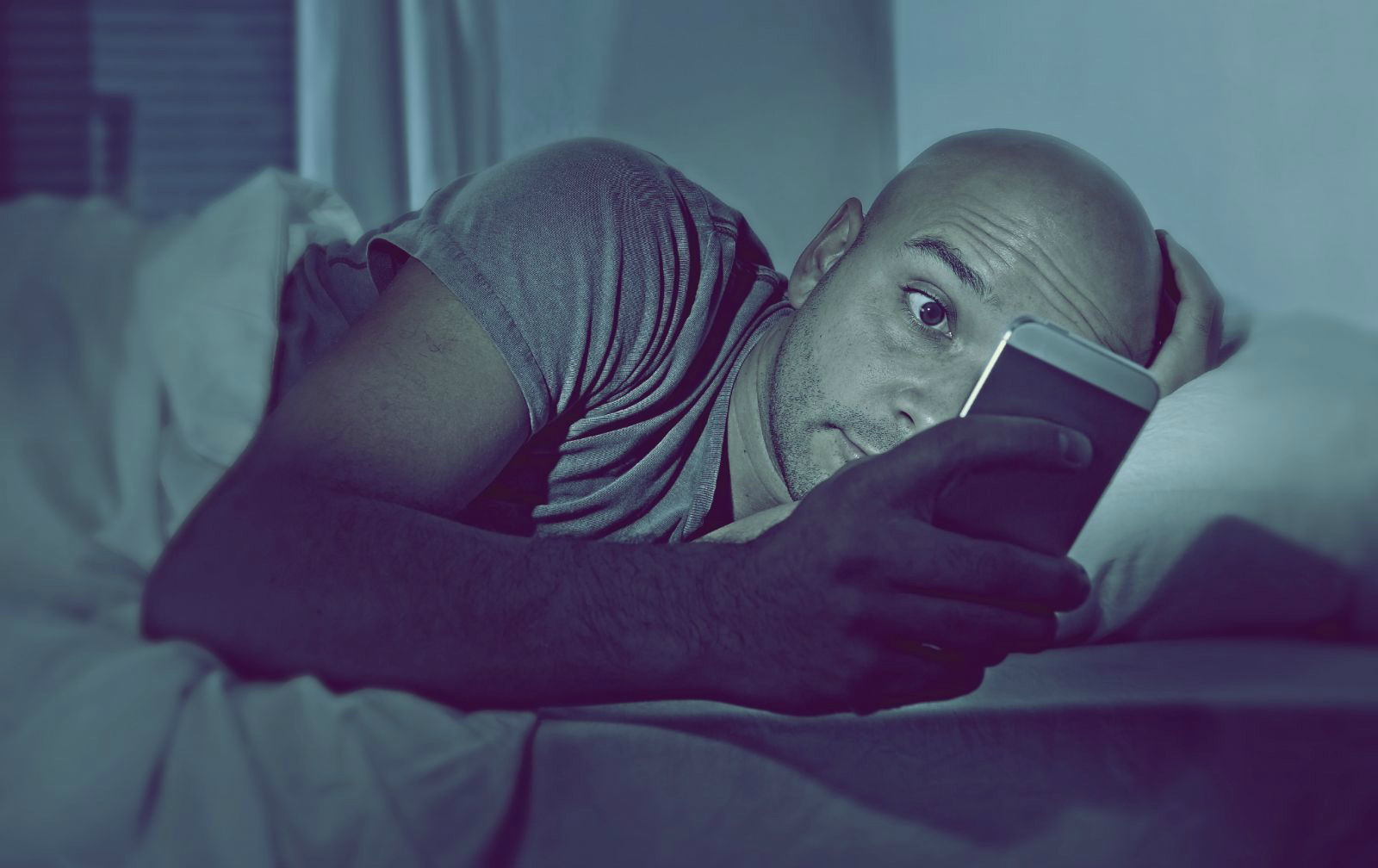
This is also supported by research - and you probably read about it (for example, here are the details ). Blue light interferes with the production of melatonin, a hormone that regulates sleep. Such light is emitted directly by the sun, fluorescent fluorescent lamps, and the screens of our gadgets. What to do with the lamps and the sun is roughly clear (the same mask will help). But if you, like me and many other modern people, like to watch or read something on your phone or tablet before bedtime, turn on a special evening mode. If your gadget does not have this, download one of the programs (usually they can be found by the words "blue light filter").
My experience: it works! If you do not forget about this mode, while reading from the screen in bed before going to bed, you quickly start nodding off, and the gadget can be turned off to finally fall asleep.
Bonus: In the morning, blue light, on the other hand, helps you wake up faster. So reading the news from the phone screen sleepily can be useful .
4. Melatonin
Speaking of melatonin. Our body produces this hormone that regulates the "physiological clock" on its own, but if there are problems with falling asleep, you can take it additionally. Studies show https://www.ncbi.nlm.nih.gov/pmc/articles/PMC4273450/ that melatonin taken before bed can help sleep and improve overall sleep quality.
My experience: Melatonin works best if you have problems with falling asleep, that is, you cannot sleep for a long time in the evening. If you are prone to unreasonably early awakenings, it may not help (this was the case with me). I took different brands of melatonin, and in terms of price-quality ratio settled on Melaxen. https: //xn--80ajbtdem4a.xn--p1ai/Please note: if you are taking melatonin to help you fall asleep, you must protect yourself from any (including those not containing the blue spectrum) light sources before bed. Otherwise, the pill may not work.
And one more thing: melatonin has contraindications. Among them are severe kidney disease, liver failure, autoimmune diseases, pregnancy and breastfeeding, etc. If in doubt, it is better to consult a doctor.
5. Magnesium

(This is what magnesium looks like)
Magnesium in our body is involved in many different functions, from normalizing blood pressure to regulating blood sugar. Including its task - to help regulate the activity of the central nervous system. If you don't have enough magnesium, it can lead to anxiety, irritability, and other problems, including sleep disturbances. Accordingly, the intake of magnesium with its lack can solve these problems - including with sleep -.
To find out if you have a magnesium deficiency, it is better to donate blood for analysis, and show the results to the doctor in order to choose the right drug and dose. Often magnesium is prescribed with vitamin B6, they work better together (many drugs combine both components). Personally, a similar drug to me (Magne-B6 magneb6.ru) helps during periods of restless uneven sleep and periods of frequent night and early morning awakenings.
Another way I have tried to get magnesium into the body is to take a bath with Epsom salt before bed (it is also Epsom salt, contains magnesium sulfate compounds, for example, this one ). A warm bath itself is relaxing and soothing, and this salt, due to magnesium, additionally relieves stress, which helps to sleep.
But too much magnesium is harmful too! And the most common reason for this excess is uncontrolled intake of dietary supplements with magnesium. In general, it is better to do an analysis and consult a doctor.
6. Motherwort, Valerian & Co

(And this is motherwort)
Herbal extracts can help normalize sleep (and mental state in general). Traditionally, motherwort, valerian, mint, lemon balm, lavender, evading peony, etc. are considered sedatives. They can be consumed in various forms - from teas, tinctures and pills or capsules with extracts to aromatherapy, for example, in the form of an aroma lamp with oil or incense sticks. Despite the fact that in our health care system, herbal extracts are considered dietary supplements and their positive effect is not officially announced, there is research that they work, and personal reviews also testify to this.
I tried a variety of herbs in different types: I drank chamomile and lemon balm teas, before bedtime I used tinctures of motherwort, valerian and peony, took courses of pills and capsules with herbal extracts. Based on the results of experiments on myself and discussion of this topic with those who also used herbal extracts to normalize sleep, I can say: all drugs are different, and it is better to look for what is right for you. But in all cases, it is better to pay attention to the manufacturer (how trustworthy the brand is), study the composition and follow the recommendations specified in the instructions.
Of the complex preparations that have several extracts of different herbs in their composition, NightMix helped me best .
It contains ivan tea (soothes and balances), valerian (has a sedative effect), lavender (helps to fall asleep), ginseng (normalizes the “biological clock”). I used the drug both "pointwise", in the evenings, when I could not sleep, and in courses, if sleep disturbances became regular. Please note: if the nervous system is very "shaken" and there are already serious problems with sleep, the improvement from NightMix may not come on the first night, but on the third or fourth. Having received the result, it is better not to stop, but to drink the course for 1-2 months.
Plus - lavender, geranium and jasmine help me personally in the form of aromatherapy. This method is fine if you, in principle, welcome fairly noticeable sources of aromas in the house. What will work to improve your sleep should be determined empirically. The aromas of lavender, sandalwood, rose, hops, geranium, lemon balm, neroli, jasmine, marjoram, chamomile, bergamot, valerian, passionflower, vetiver, patchouli, benzoin, petitgrain, etc. work in a similar way.
7. Cold head + warm feet
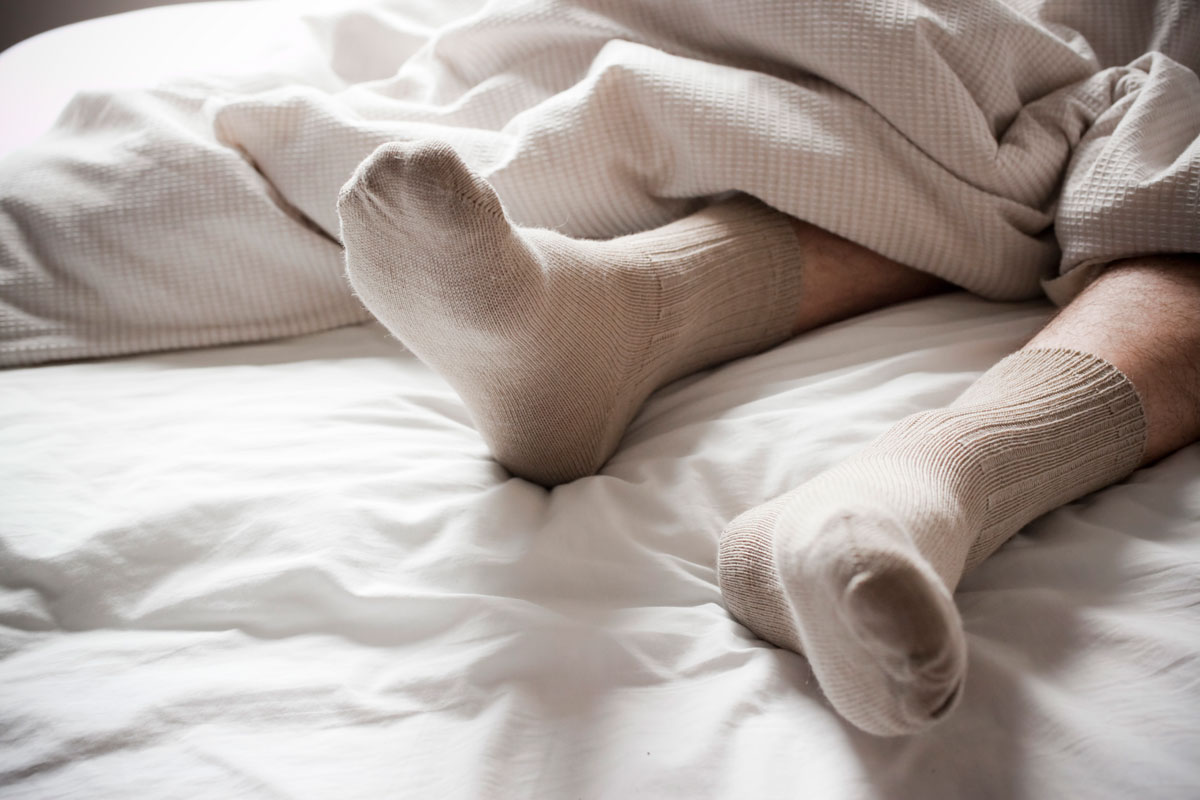
It is generally known that it is best to sleep in a cool and well-ventilated area. At the same time, if you feel cold in bed, it, on the contrary, will prevent you from falling asleep. Keeping your feet warm is especially important: Studies have shown that when the feet are warmed and the vessels in them are dilated, it helps better thermoregulation, which promotes good sleep. That is: the room should be ventilated before going to bed so that it is cool, but it is better to choose a blanket that is warm enough. Also, if it's cold, you can additionally cover your legs with a blanket or put on socks.
My experience: it works! Especially socks, and especially when it is cold in the apartment. Warm feet help you fall asleep faster and sleep better.
8. Good bedding
In general, this advice is relevant for everyone (except for hardened ascetics), but it is especially important for those who have sleep problems. Provide yourself as comfortable and convenient place to sleep as possible! Find what works best for you: a bed, a mattress of the right firmness, pillows you don't want to part with, a blanket you don't want to crawl out of, bed linen and pajamas that are most pleasant to you.
My experience is that sleep problems appear less frequently and go away faster when you are comfortable.
9. Mode and physical activity
Again boring common truths, but what if they work. As much as possible, try to go to bed at the same time (it would be nice if this happens before midnight). Moderate physical activity also helps to relieve unnecessary anxiety and neutralize sleep problems.
My experience: During periods when I exercise and walk a lot, the likelihood of insomnia is lower than in those moments in life when I spend most of the day without looking up from my laptop.
10. Rituals before bed

This method can help people with a certain mentality. If you are usually calmed by the rituals in principle, and the ability to do everything according to the planned list is pacifying, try sleeping rituals. Come up with your ritual - more often it develops spontaneously, you just need to help yourself by fixing the sequence of actions in your mind. For example, before going to bed, I clean the apartment, ventilate the room, take a shower, light an incense stick and read for half an hour. It helps to tune in to sleep, and with each new item I am more and more ready to fall asleep.
11. Achieving greater inner peace

And healthy indifference! For me personally, the main trigger for the manifestations of insomnia is the reaction of my psyche to all sorts of problems, stress, and so on. What to do about it? Train your inner Zen. If anxiety reaches such proportions that it interferes with not only sleeping well, but also living, it is better to go to psychotherapy. If this is not possible, share your experiences and thoughts about them with a sensitive and attentive friend. If there is no such friend, try to help yourself on your own: writing techniques, body relaxation techniques, art therapy, meditation - there are many ways, look for your own. My experience is that even the fact that you do something for yourself, trying to solve the problem of excessive anxiety, somewhat relieves this anxiety. Each new way can help achieve the goal less or more, and as a result, things get better in one way or another.